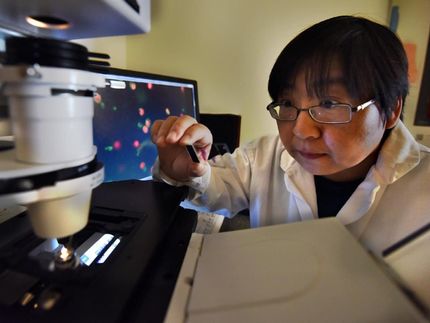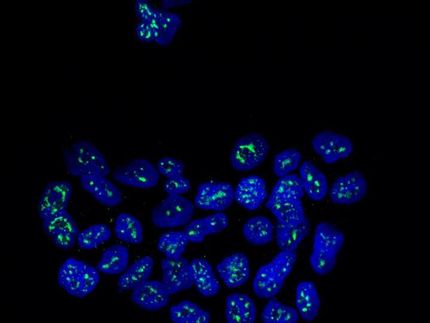Melatonin boost a key to fighting breast cancer
melatonin, a hormone produced in the human brain, appears to suppress the growth of breast cancer tumors.
Researchers at Michigan State University published this finding in the current issue of Genes and Cancer. While treatments based on this key discovery are still years away, the results give scientists a key foundation on which to build future research.
"You can watch bears in the zoo, but you only understand bear behavior by seeing them in the wild," said David Arnosti, MSU biochemistry professor, director of MSU's Gene Expression in Development and Disease Initiative and co-author of the study. "Similarly, understanding the expression of genes in their natural environment reveals how they interact in disease settings. That's what is so special about this work."
The brain manufactures melatonin only at night to regulate sleep cycles. Epidemiologists and experimentalists have speculated that the lack of melatonin, due in part to our sleep-deprived modern society, put women at higher risk for breast cancer. The latest MSU study showed that melatonin suppresses the growth of breast cancer stem cells, providing scientific proof to support the growing body of anecdotal evidence on sleep deprivation.
The research team was led by Juliana Lopes, a visiting researcher from Sao Paolo, Brazil. Before the team could test its theory, the scientists had to grow tumors from stem cells, known as "mammospheres," a method perfected in the laboratory of James Trosko at MSU.
The growth of these mammospheres was enhanced with chemicals known to fuel tumor growth, namely, the natural hormone estrogen, and estrogen-like chemical Bisphenol A, or BPA, found in many types of plastic food packages.
Melatonin treatment significantly decreased the number and size of mammospheres when compared with the control group. Furthermore, when the cells were stimulated by estrogen or BPA and treated with melatonin at the same time, there was a greater reduction in the number and size of mammospheres.
"This work establishes the principal by which cancer stem cell growth may be regulated by natural hormones, and provides an important new technique to screen chemicals for cancer-promoting effects, as well as identify potential new drugs for use in the clinic," Trosko said.
Most read news
Other news from the department science

Get the life science industry in your inbox
By submitting this form you agree that LUMITOS AG will send you the newsletter(s) selected above by email. Your data will not be passed on to third parties. Your data will be stored and processed in accordance with our data protection regulations. LUMITOS may contact you by email for the purpose of advertising or market and opinion surveys. You can revoke your consent at any time without giving reasons to LUMITOS AG, Ernst-Augustin-Str. 2, 12489 Berlin, Germany or by e-mail at revoke@lumitos.com with effect for the future. In addition, each email contains a link to unsubscribe from the corresponding newsletter.
Most read news
More news from our other portals
Last viewed contents
Cellular Stress Management in People and Plants - Discovery of a fundamental biological mechanism

Good bacteria to tackle depression - Intestinal flora influences the psyche
CMP Therapeutics Appoints Dr Neill Moray Mackenzie as CEO
Settlement of patent infrigment lawsuit - QIAGEN pays Oxford Immunotec for royalty free license
'Skinny fat' in older adults may predict dementia, Alzheimer's risk
Takeda Initiates Cardiovascular Outcomes Trial for Alogliptin for Treatment of Type 2 Diabetes























































